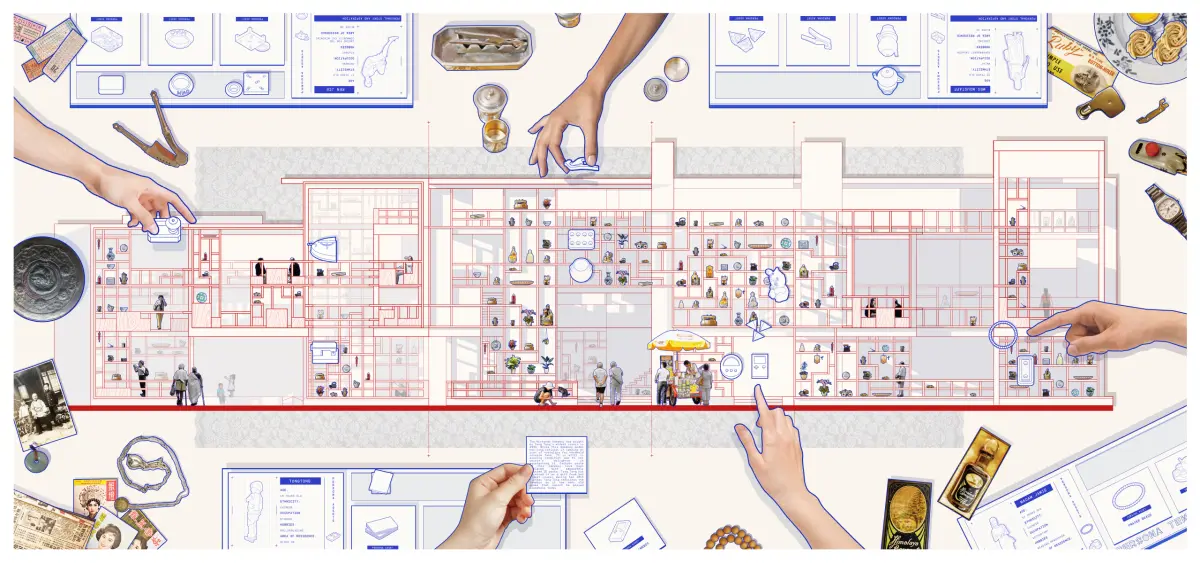
Museum of Everyday Life
BY Ching Yu Han
SUPERVISED BY Assoc. Prof. Thomas Kong
STUDIO THEME TEN MODEST SUGGESTIONS FOR A NEW ATHENS CHARTER (IN SINGAPORE)
Abstract
“If the ancient concept of the museum as the ‘home of the muses’ is to be updated to our present times, we must follow the muses in their wandering beyond the gallery space, off-site, and into the difficult terrain.” - Dehlia Hannah
My thesis investigates the making of a distributed museum of our everyday life. The thesis adopts the spirit of relational aesthetics, a contemporary art form which brings its theoretical horizon beyond the independent, private and symbolic space of a museum or gallery, focussing on the human relations and their social contexts. An example of relational aesthetics would be Rirkrit Tiravanija’s Untitled. He had served Thai curry soup to the exhibition visitors and had conversations with them during the experience. The art in this case is not the Thai curry soup, but the conversations and relationships that had been formed during the experience.
Against the backdrop of Singapore’s ageing population, the thesis asks how can the museum play a social mission in allowing the elderly of Chai Chee to age in place? In addition, how can the museum’s collection contribute to this mission? As such, the thesis’ museum departs from the setting of an institutionalised museum e.g national museums and private galleries. Instead, it approaches its collection, curation and design through a bottom-up and multi-scalar approach.
The thesis has devised a three-fold exploration through relational ideals- the board game Housing Curiosities as a participatory site-surveying method in engaging the community to discover hidden-spatial meanings and relationships at site, a series of Everyday Structures to house the collection of objects and the Museum of Everday Life for a larger collection that would have accumulated over the years.
Supervisor Comments
The thesis explores the relationship between curating, archiving, community engagement, and the emergence of a new space for art antithetical to a traditional museum's design, use, and meaning. By positioning everyday objects as relational agents and carriers of social history, the thesis recontextualises the institutional setting of curating and archiving by embedding the practices amidst the Chai Chee community in Singapore. The objects provide opportunities for conversations and storytelling to happen and the possibility of a new distributed museum typology for socially engaged art in the twenty-first century.
- Assoc. Prof. Thomas Kong